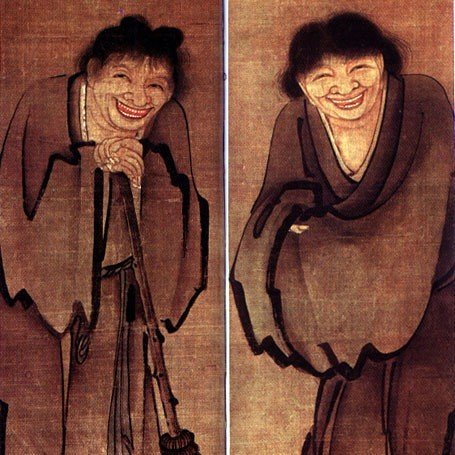Dharma Monday
Cold Mountain: the poetry and teachings of a mountain sage (week one)

Dharma night is suitable for those who would like to learn more about Buddhism. It is also a popular night for regular friends to drop in and practice together. If you are a beginner but can't get to/or have just started one of our meditation classes, you are still welcome to come and join in.
The program for the evening is a talk on some aspect of Buddhism, tea break, then group meditation to end the evening.
This Monday we begin a new three week theme by Ratnavyuha on "The Poetry and Teachings of Cold Mountain"
"Some of my friends are poets and they talk about the joys of reading poetry. My public education failed me in this respect, since I thought poetry was mostly about rhyme and metre, technical word puzzles for the clever to decipher. Not being particularly skilled with words myself, it was all too hard for me to appreciate. I did not understand what all the fuss was about until I stumbled upon poetry that actually moved my heart and opened spaces. There have been a few poets who actually spoke to me directly in this way, one of them is an 8th century Chinese hermit named Han Shan (which translates as 'Cold Mountain' which is where he lived the later years of his life).
Cold Mountain wrote his poems on rock faces and I feel fortunate that someone loved them enough to collect and preserve them. It was hundreds of years after his death before people started to appreciate these poems. Currently, he is one of China's most loved poets (but ironically not within China itself). It is not hard to tell why …
Spring water is pure in an emerald stream
moonlight is white on Cold Mountain
silence thoughts and the spirit becomes clear
focus on emptiness and the world grows still
Over the next three weeks, I'd like to share some more of Han Shan's poetry and the Buddhist reflections they stimulate for me. Although there is not much actually known about his life, through his poems, you get a clear sense of meeting something special."
Who was Han Shan?
In the first week we'll look at his life and some of the contemporary difficulties people have had translating his poems. Do you need to be a Buddhist to translate Buddhist poems? Or is it enough to simply know the language? Some of Han Shan's poems express the sentiment that even in his day people did not understand him, although he also believed the future might be different and invites us to join him on the mountain.
The above poem was translated by Red Pine ("The Collected Songs of Cold Mountain", Copper Canyon Press, 2000)
When
Cost
Koha/dana
Caring for each other's health
Before attending, please read our current Covid Guidelines. This is part of how we practice together.
Led by

Ratnavyuha
I've been actively involved with the Triratna Buddhist community since 1992 when I was still at University. As with many other people, my personal…
